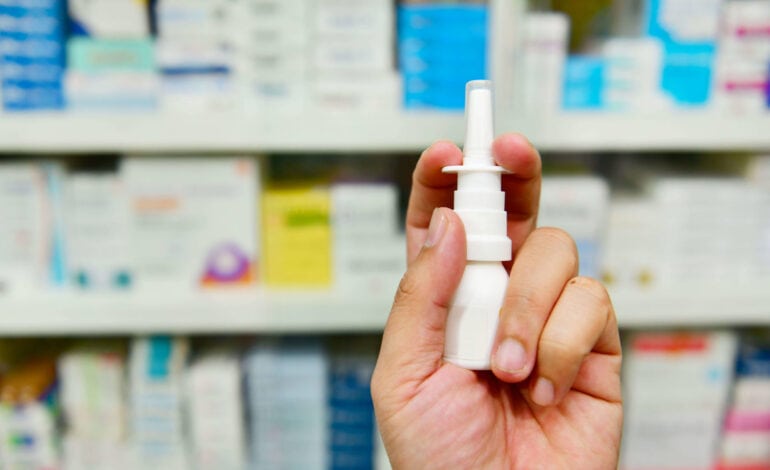Boundaries are important for every relationship. From early childhood, we learn to set boundaries to protect ourselves and help others understand what is acceptable. All healthy romantic relationships have boundaries; whether they are spoken or unspoken, we set them for ourselves and our partner. They especially protect and help us during our loved one’s addiction while they simultaneously play a large part in the healing process of recovery for our significant other. As we approach Valentines’ Day, a day dedicated to celebrating love and healthy relationships, we may also push our loved ones and ourselves to hold healthy boundaries in our relationships, especially those centered on recovery.
Navigating our way through an intimate relationship is challenging, as relationships require time, patience, self-discovery, compromise, healthy emotional attachments, trust, and vulnerability. For those in addiction recovery or who are dating someone in addiction recovery, many of these characteristics are still a work in progress.
Addiction is a disease that ruins healthy relationships, leaving us feeling alone and wounded. Many of us navigate recovery while learning how to trust others for the first time while simultaneously learning how to manage our emotions and work through old wounds. Recovery is difficult and requires one to be self-focused. Addiction recovery is when personal evaluation, inner reflection, and gaining new insights, skills, and behaviors must be the priority for success along the road to recovery. As a result, establishing and re-building relationships during recovery can be difficult. Many professionals should advise not to begin a new relationship until an individual is at least a year into their recovery journey. But what about those who are trying to re-establish existing relationships by setting boundaries? After all, we are humans who crave and thrive physical and emotional connections with other humans.
Ingredients to setting healthy boundaries in addiction recovery:
Establish and maintain trust: Addiction is a disease of deception, denial, and shame. We don’t want to face the reality that we are addicted to drugs or alcohol. Therefore, we lie to our partner and engage in deceptive tasks and actions to trick our partner into believing that we do not have a problem and trick ourselves. To break free from the deception and lies associated with our addiction, we must introspectively reflect on our thoughts and actions and take accountability for how we have acted toward our partner in the throes of our addiction. We must face our greatest fears in regards to our self-worth and our worthiness to others. We must learn to be honest with ourselves and in our relationships to learn to establish and maintain trust. Without honesty and trust, there are no grounds for a healthy relationship.
The ability to manage emotions and heal old wounds: One of the most challenging aspects of addiction recovery is not about resisting the urge to use alcohol or drugs but about learning how to relate in a world where our emotional crutch (drugs and alcohol) is no longer present. We must learn how to deal with love, loss, hurt, wounds, and deep feelings that come with a relationship. If our wounds have not yet healed, we may lash out at our loved ones or not be able to support our loved ones the way that they expect or need.
The ability to acquire and appropriately use positive coping skills: For most individuals in addiction recovery, addictive substances were our coping mechanism to deal with intolerable feelings. Now, we must find and adopt healthy coping skills to help us cope with these intolerable feelings. Likely, buried feelings we kept in hiding will now begin to surface as we navigate the throes of recovery. We must learn to communicate with our partners about these feelings and use our coping skills to navigate the trials and tribulations that come with every relationship. If our partner does something that hurts us or does something that we do not approve of, we can’t turn to drugs or alcohol to bury intolerable feelings. We must practice our coping skills and communication skills to overcome these relationship hardships.
Demands on time and energy: Recovery requires focus, engagement, and commitment. We must attend community meetings, support groups, therapy sessions and consistently engage with our recovery community. Many of these engagements may not be of interest to our romantic partner, and we must learn to make our recovery a priority. The perception of which is more important, the recovery process or the relationship, can create a practical dilemma for both partners. Therefore it is important to agree about the importance of your recovery. You must dedicate the time needed to be successful in your recovery journey. It is equally important that your partner gives you the time, space, and support you need throughout this important journey.
The risk for setbacks: Recovery is rarely a straightforward path. More often than not, setbacks, slips, and relapses are part of the process, and these can be very challenging for a relationship. It is important to have a partner who can help you work through setbacks and allow you to breathe, grow and learn through this process. Your partner should support your successes and failures and be willing to stay the course and put in the hard work.
In her book Mating in Captivity: Reconciling the Erotic and the Domestic; Dr. Esther Perey states, “The quality of our lives is determined by the quality of our relationships.” Yet, Dr. Perel argues that in our present-day world, never have we expected more from our intimate relationships while simultaneously feeling the intense weight of expectations around them.
This Valentines Day, try spending some time thinking about your relationship in recovery:
How can you cultivate a space for you where your needs are top priority?
What would that look like in the context of a loving and connected relationship?
What would need to change?
Whose support would you need, and how could you ask for that?
What pleases you, and how can you access that today?
Akua Mind & Body is more than just a treatment center or a residential facility; it’s a revitalizing retreat that provides holistic treatment programs for those who are in need of substance use and mental health programs. Our integrative treatment approach combines Eastern traditions with Western science to provide the highest quality of care.




